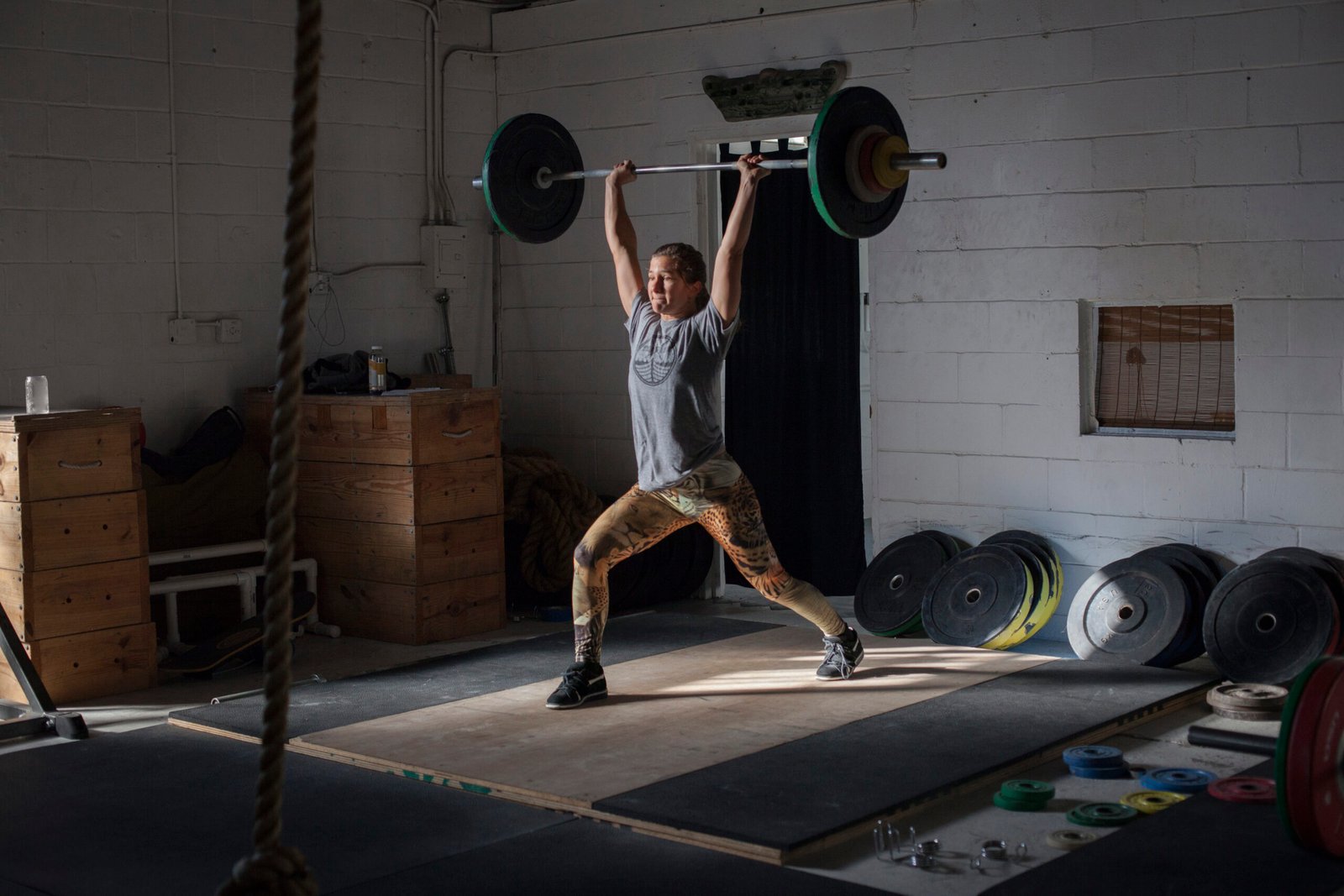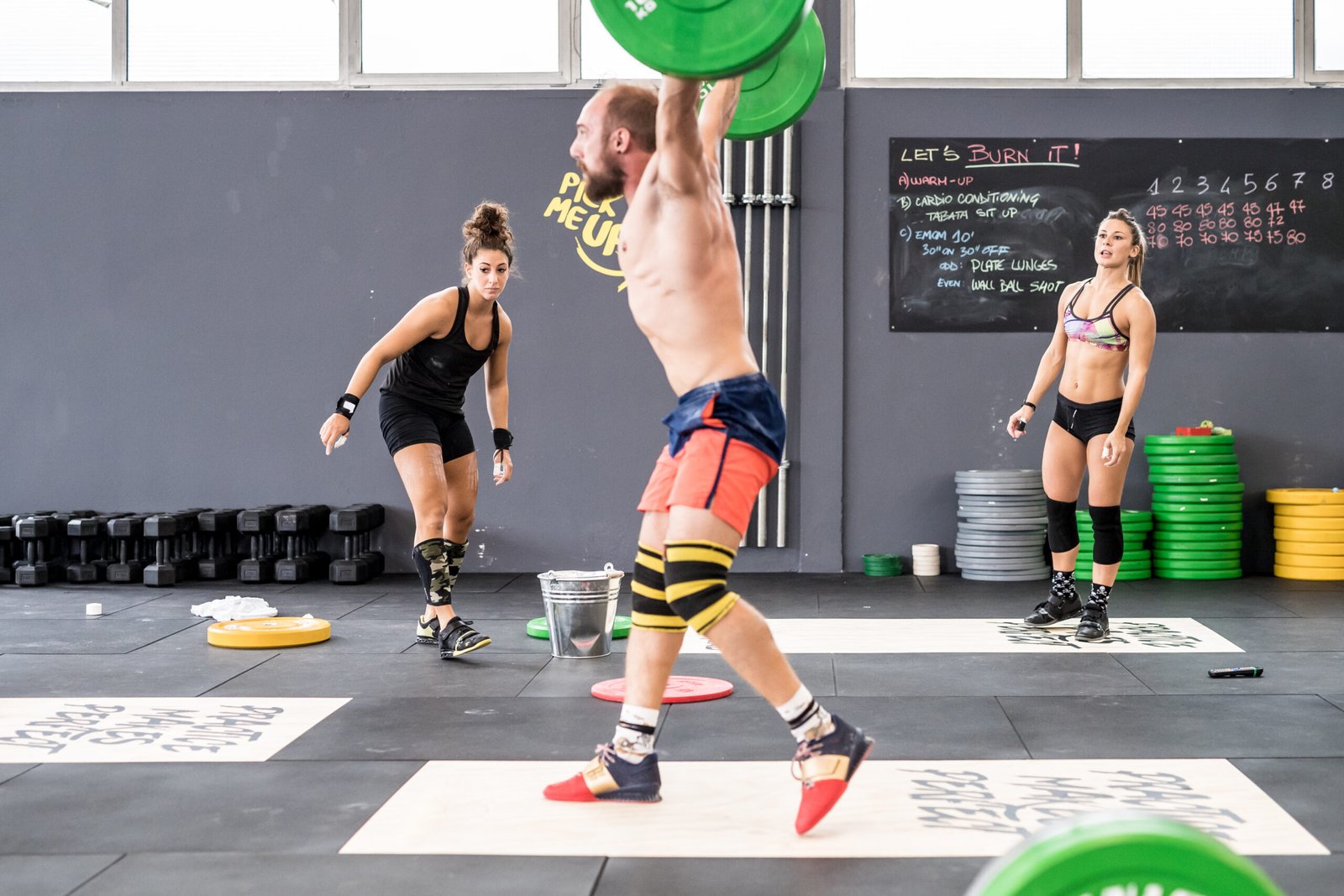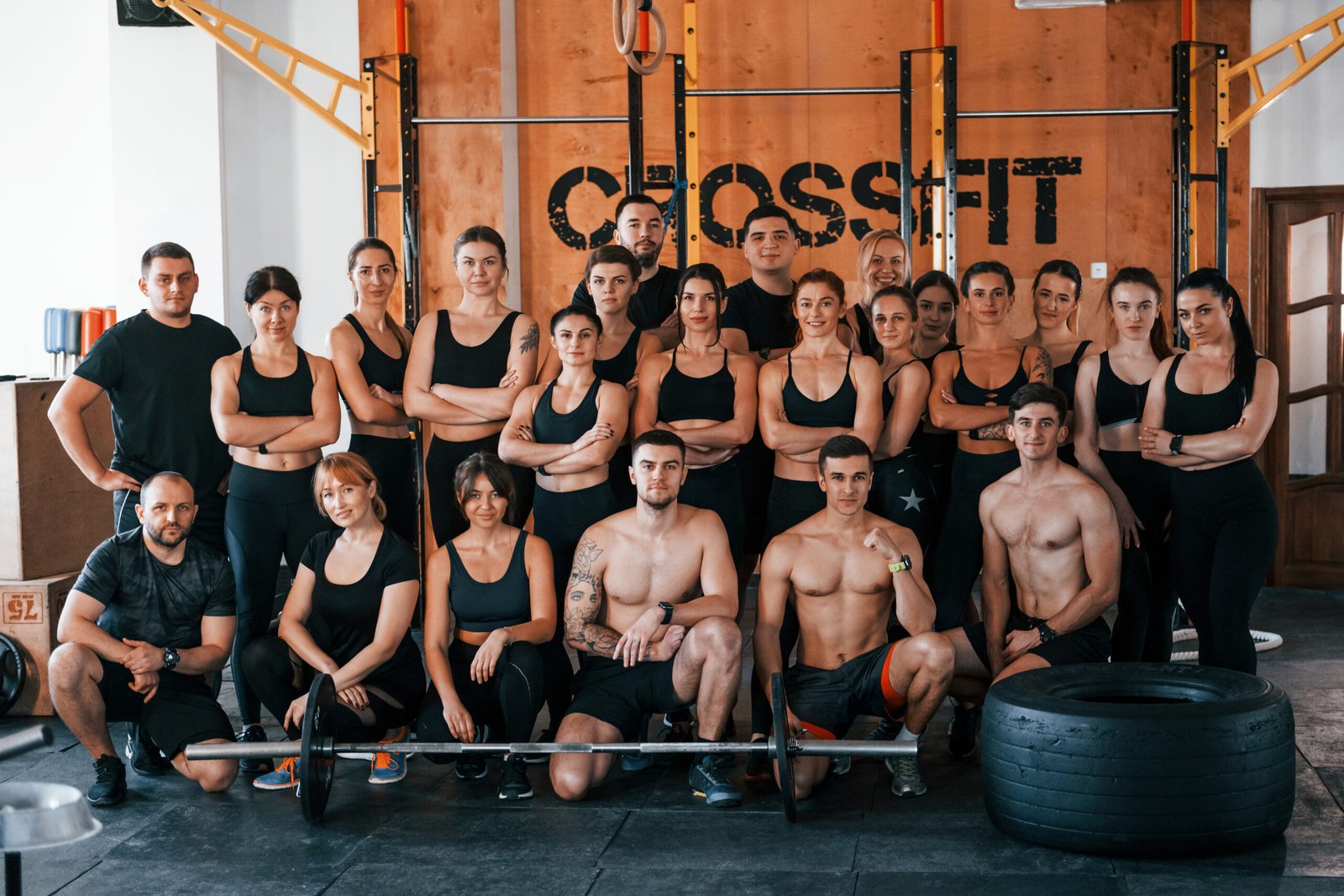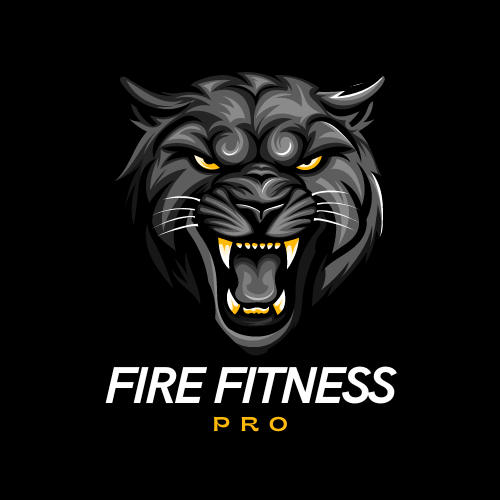Nutrition plays a pivotal role in achieving peak performance, especially for those immersed in the world of CrossFit. Understanding what fuels your body can be as vital as the training itself. This is where the synergy of nutrition and CrossFit comes into play, highlighting the importance of fueling your body for peak performance. If you are serious about excelling in CrossFit, balancing macronutrients, staying hydrated, and strategic meal planning are mandatory components of your regimen. Let’s delve into how you can optimize your nutrition to elevate your CrossFit accomplishments.
Fueling Your Body for CrossFit Success: A Guide for Athletes and Coaches
Understanding how to fuel your body correctly is crucial for athletes and coaches involved in CrossFit. Emphasizing a well-balanced diet that provides adequate carbohydrates, proteins, and fats is foundational to meet the energy demands of high-intensity workouts. Carbohydrates provide the necessary quick energy, while proteins are pivotal in muscle repair and growth. Healthy fats offer sustained energy and support vital cellular functions. Notably, hydration and electrolyte balance are equally important, as they significantly impact performance and recovery; hence, athletes are advised to consume fluids strategically before, during, and after sessions.
A balanced diet for CrossFit should not only focus on macronutrients but also incorporate micronutrient-rich foods such as lean proteins, whole grains, fruits, and vegetables. This approach ensures you’re receiving essential vitamins and minerals critical for optimal health and body function. Personalizing nutrition plans to align with individual goals, dietary restrictions, and preferences facilitates not only immediate performance enhancements but also aids in long-term CrossFit success. By adhering to these nutrition guidelines, CrossFit enthusiasts can sustain an edge over the competition and ensure consistent performance improvements.
– Prioritize balanced macronutrient intake: Tailor the proportions of carbohydrates, proteins, and fats according to workout intensity.
– Stay hydrated: Drink water and consider electrolyte supplements during intense sessions.
– Time your meals wisely: Consume carbohydrates before workouts and proteins post-workout for recovery.
– Incorporate nutrient-dense foods: Lean proteins, whole grains, fruits, and vegetables should be staples.
– Personalize your nutrition plan: Align your diet with personal goals, preferences, and dietary needs.
Incorporating effective post-workout recovery strategies is essential to complement your nutrition plan.
Understanding the CrossFit Diet
The CrossFit diet is distinct in its balanced approach to macronutrient intake, crucial in supporting the rigors of high-intensity workouts. This diet places a substantial focus on proteins, carbohydrates, and fats—each contributing significantly to physical performance and recovery. Adequate protein, sourced from lean meats, fish, eggs, and plant-based options, plays a critical role in muscle repair and growth. Carbohydrates, derived primarily from whole grains, fruits, and vegetables, serve as essential energy providers, ensuring endurance is maintained. Meanwhile, fats from avocados, nuts, and olive oil are integral for sustained energy and supporting cellular health.
Understanding these dietary pillars enables athletes to enhance their performance levels. Moreover, since hydration significantly influences energy levels and recovery, it is crucial to adapt meal timing strategies effectively. Athletes should plan their dietary intake around training sessions, leveraging the right macronutrients for optimal performance. By doing so, athletes can maximize their nutritional strategies to align with their dedicated training regimens, enhancing overall fitness levels and achieving remarkable gains in their CrossFit journey.
– Emphasize balanced macronutrients: Integrate proteins, carbohydrates, and fats into daily diets.
– Hydration and meal timing: Align your intake with workout schedules for improved performance.
– Protein for muscle repair: Utilize lean meats, fish, and plant-based proteins.
– Carbohydrates for energy: Whole grains, vegetables, and fruits are vital sources.
– Fats for cellular health: Include avocados, nuts, and olive oil routinely.
What is the CrossFit Diet?
The CrossFit diet adopts a holistic approach, focusing on balanced macronutrient intake—proteins, healthy fats, and complex carbohydrates—to fuel the intensity of workouts. This approach encourages athletes to consume primarily whole foods rich in nutrients. Choosing fresh vegetables, fruits, nuts, seeds, and lean meats underscores the diet’s nature. Often aligning with the Zone Diet principles, the CrossFit method simplifies the understanding of macronutrients by involving specific ratios tailored to boost performance and enhance recovery processes.
Attention to hydration levels and incorporating adequate vitamins and minerals also form pillars of the CrossFit diet. This structural framework supports exercise efficiency and overall health. Moreover, personalization is a key component, ensuring the dietary strategy suits individual demands, workout intensities, and fitness ambitions. Tailoring dietary plans consequently guarantees that energy levels are maintained, leading athletes to conquer their personal fitness challenges and achievements.
– Whole-foods approach: Prioritize fresh, nutrient-dense ingredients.
– Adopt the Zone Diet principles: Apply specific macronutrient ratios for optimal results.
– Hydration and micronutrients: Ensure adequate water, vitamins, and minerals intake.
– Personalize your CrossFit diet: Adapt plans to fit personal health and fitness goals.
– Sustain energy levels: Align dietary intake with workout intensities.
Nutrition Strategies for CrossFit Performance
| Nutrition Element 🥗 | Description 📋 | Benefits 🌟 | Examples 🍽️ |
|---|---|---|---|
| Balanced Macronutrients ⚖️ | A diet including carbohydrates, proteins, and healthy fats to meet CrossFit’s intense energy demands. | Enhances endurance, supports muscle repair, provides sustained energy. | Whole grains, lean meats, avocados, nuts. |
| Pre-Workout Nutrition 🍌 | Fueling up with balanced carbs and proteins 2-3 hours before training. | Boosts energy, improves workout performance, minimizes early fatigue. | Banana with almond butter, oatmeal with berries, Greek yogurt. |
| Post-Workout Recovery 🥤 | Consuming proteins and carbs within 30 minutes post-exercise. | Accelerates muscle repair, replenishes glycogen stores, reduces soreness. | Protein shake with fruits, chicken with quinoa, chocolate milk. |
| Hydration 💧 | Maintaining water intake and using electrolytes for sustained hydration. | Prevents dehydration, supports nutrient transport, improves recovery. | Water, electrolyte drinks, coconut water. |
| Lean Proteins 🍗 | Essential amino acids for muscle recovery and growth. | Aids in tissue repair, supports muscle mass, enhances recovery. | Chicken breast, fish, eggs, tofu, legumes. |
| Complex Carbohydrates 🍞 | Provides energy for high-intensity CrossFit workouts. | Sustains endurance, aids in glycogen replenishment, supports focus and stamina. | Sweet potatoes, whole grains, fruits, vegetables. |
| Healthy Fats 🥑 | Supports long-term energy, hormone production, and cellular health. | Prolongs energy, enhances nutrient absorption, supports joint and cellular functions. | Olive oil, nuts, seeds, avocado. |
| Electrolytes ⚡ | Restores minerals lost through sweat during intense training. | Prevents cramps, maintains endurance, promotes effective recovery. | Sports drinks, electrolyte tablets, coconut water. |
| Supplements 💊 | Enhances diet and performance with targeted nutrients. | Reduces muscle fatigue, boosts energy, supports overall CrossFit demands. | Whey protein, BCAAs, creatine, omega-3s, multivitamins. |
| Meal Timing ⏰ | Aligning meal consumption with training schedules for optimal energy and recovery. | Enhances performance, supports muscle repair, and sustains energy throughout workouts. | Pre- and post-workout meals rich in carbs and proteins. |
| Whole Foods 🍏 | Emphasis on nutrient-dense, minimally processed ingredients. | Boosts immune function, supports sustained energy, reduces inflammation. | Fresh fruits, vegetables, lean proteins, whole grains. |
| Personalized Nutrition 👤 | Adapting dietary intake to align with individual fitness goals, body composition, and workout intensity. | Ensures balanced energy, supports unique recovery needs, optimizes individual CrossFit outcomes. | Tailored macronutrient ratios, flexible meal planning. |
How Does the CrossFit Diet Differ from Other Diets?
What sets the CrossFit diet apart is its commitment to whole, unprocessed foods that deliver essential nutrients and adequate energy for demanding workouts. Unlike some other dietary frameworks, it revolves around a balanced macronutrient intake of proteins, carbohydrates, and fats, each contributing uniquely to muscle growth and recovery. Efficient timing of meals in relation to training sessions is a crucial aspect that separates this approach, optimizing both performance and recovery.
Flexibility and individuality are at the core of the CrossFit diet. This accommodates personal performance objectives, body composition goals, and flavor preferences. Furthermore, a strong emphasis on maintaining hydration and electrolyte balance reinforces its uniqueness, addressing the rigorous requirements of CrossFit training. As a result, athletes following this specialized nutritional regime can anticipate decisive improvements in their workout capabilities while maintaining a lifestyle that supports their exceptional level of activity.
– Unprocessed, whole foods: Integral to meeting energy and nutrient needs.
– Balanced macronutrient intake: Essential proteins, carbohydrates, and fats are paramount.
– Flexible meal timing: Enhance workouts through strategic nutrition.
– Strong focus on hydration: Manage fluid intake to meet training demands.
– Individualized approach: Customize dietary habits for personal success.
What are the Benefits of Following a CrossFit Diet?
Following a CrossFit diet offers a multitude of benefits vital for athletes striving for excellence. This specialized regimen emphasizes whole, nutrient-dense foods, providing unwavering energy sources required for superior athletic performance. CrossFit enthusiasts can expect optimized recovery and muscle growth by maintaining a well-rounded intake of proteins, fats, and carbohydrates.
Proper nutrition significantly improves endurance and strength, boosting performance in high-intensity workouts while benefiting metabolic functions and body composition. Adhering to an individualized diet ensures steady progress without succumbing to energy crashes. By sustaining a CrossFit-focused diet, athletes can not only meet their fitness ambitions but continually surpass their personal benchmarks in health and athletic prowess.
– Nutrient-dense foods: Vital for sustained energy and athletic performance.
– Balanced macronutrients for recovery: Enhance muscle growth and optimize workouts.
– Improved strength and endurance: Excel in high-intensity training.
– Enhanced metabolic function: Benefit body composition and health goals.
– Prevent energy crashes: Achieve sustained progress with personalized dietary plans.
Macronutrients
Macronutrients are fundamental for optimal body function, particularly in CrossFit where the demands on the body are intense. Carbohydrates, proteins, and fats not only provide energy but each plays a unique role in performance and recovery. Carbohydrates are the main energy source, crucial for high-intensity activities. Proteins support muscle repair and growth, imperative for strength development. Meanwhile, healthy fats ensure sustained energy and are essential for hormone production and nutrient absorption, necessary for physical excellence.
Understanding these roles helps athletes harness macronutrients to bolster their training outcomes. A calculated balance of these nutrients matched to workout demands can tremendously enhance performance and recovery. CrossFit athletes who skillfully integrate macronutrient management into their diets will likely experience significant improvements in overall health and athletic capabilities.
– Carbohydrates for energy: Essential for maintaining endurance and performance.
– Proteins for muscle support: Aid recovery, repair, and strength building.
– Healthy fats for energy: Assist hormone production and nutrient absorption.
– Balance is key: Tailor nutrient intake to workout intensities.
– Performance enhancement: Tap into macronutrients for improved results.
What are Macronutrients?
Macronutrients—comprising carbohydrates, proteins, and fats—are indispensable nutrients required by the body in large amounts, fundamental for various functions, including energy provision and physiological balance. They serve distinct roles in supporting physical performance, particularly critical in a high-demand regimen like CrossFit. Carbohydrates act as the central energy reservoirs, fueling high-intensity activities efficiently. Proteins form the building blocks of muscle tissue, essential for growth and post-exercise recovery.
Furthermore, fats offer long-lasting energy and support cellular activities, playing a pivotal role in hormone production vital for maintaining body homeostasis. Understanding each macronutrient’s contribution to body systems allows athletes to align their nutrition strategies effectively with their performance goals. By doing so, athletes enhance both their immediate workout performance and longer-term health results.
– Carbohydrates: Primary energy source, especially for intense activities.
– Proteins: Crucial for muscle building and tissue repair.
– Fats: Provide sustained energy and support hormonal functions.
– Essential for functions: Facilitate a well-rounded approach to CrossFit training.
– Enhance health outcomes: Align with fitness and performance aspirations.
How Do Macronutrients Impact CrossFit Performance?
The critical role of macronutrients in CrossFit performance cannot be overstated, as they serve as fundamental energies and recovery substrates. Carbohydrates fuel these high-intensity workouts, sustaining endurance and preventing early energy depletion critical in CrossFit training. Proteins, crucial for muscle repair and growth, play a direct role in recovery and promoting strength gains post-workout. Healthy fats support prolonged energy release, balance hormonal activity, and maintain cellular functions, contributing to overall performance in CrossFit endeavors.
Meticulous attention to the balance of these macronutrients can significantly amplify an athlete’s performance capabilities. By understanding and adjusting the intake of each macronutrient to meet the specific demands of varied workouts, CrossFit enthusiasts can anticipate enhanced performance outputs, expedited recovery, and improved overall health—a testament to the power of informed nutritional strategies.
– Carbohydrates: Preserve endurance and boost workout intensity.
– Proteins: Aid recovery and facilitate muscle strength increments.
– Healthy fats: Prolong energy, stabilize hormones, and support cells.
– Balanced intake: Align nutrition with exercise demands for optimal output.
– Amplify results: Fuel workouts for maximum performance and speedy recovery.
What is the Ideal Macronutrient Ratio for CrossFit Athletes?
The ideal macronutrient ratio for CrossFit athletes is often debated, yet achieving a balance geared towards enhancing performance, recovery, and fitness is paramount. Typically, athletes should lean toward a higher carbohydrate intake because these serve as the primary energy source during the intense bouts of CrossFit workouts. Proteins, supporting muscle repair and growth, should contribute a moderate portion of nutritional intake. Healthy fats, essential for sustained energy and hormonal support, round out the dietary needs.
Personalizing macronutrient ratios is crucial, considering factors like training intensity, individual body composition goals, and metabolic necessities. By adjusting these ratios to personal requirements, athletes can optimize their nutrition, ensuring it adequately complements their training regimen and supports ongoing improvements in health and performance.
– Higher carbohydrates: Essential for meeting energy demands.
– Moderate proteins: Promote recovery and strengthen muscles.
– Healthy fats: Provide extended energy and support hormones.
– Personalized adjustments: Tailor ratios to individual needs and goals.
– Optimize nutrition: Align dietary intake with workout intensities for best results.
Meal Planning
Effective meal planning is instrumental in achieving CrossFit success and revolves around integrating balanced macronutrients tailored to enduring CrossFit’s physical challenges. A strategic focus on whole foods and lean proteins aids muscle recovery and growth. Moreover, aligning meal times for energy stabilization optimizes workout efficiency. Nutrient intake, timed strategically around training schedules, enhances endurance and fortifies training outcomes.
Remaining adaptable and revisiting your meal plans based on changing training goals and intensities is crucial. Such mindfulness toward meal preparation ensures that nutrition complements training ambitions and leads athletes toward their pinnacle objectives in CrossFit. Consistent implementation of these meal planning principles an athlete’s fitness journey profoundly impacts overall performance and health.
– Balanced macronutrients: Catered specifically to CrossFit requirements.
– Whole foods and lean proteins: Support recovery and muscle build.
– Strategic meal timing: Enhance energy stabilization and workout output.
– Adjusting plans: Ensure alignment with training intensity and targets.
– Optimize performance: By integrating nutrition, achieve peak CrossFit success.
How to Create a CrossFit Meal Plan?
Designing a CrossFit meal plan necessitates evaluating macronutrient needs based on specific fitness goals. This involves a comprehensive focus on proteins, carbohydrates, and fats to sustain energy and aid muscle recovery. Begin by incorporating a wide variety of whole, nutrient-dense foods, ensuring you receive essential vitamins and minerals crucial for overall health and optimizing performance. Plan your meals and snacks around your workout schedule, prioritizing easily digestible carbohydrates before training sessions and protein-rich foods afterward for adequate recovery.
Additionally, hydration is integral. Keep well-hydrated with water, and consider leveraging electrolyte supplements during rigorous activities to maintain performance and fend off dehydration. Regular reassessment and adjustments to your meal plans ensure they align with changes in goals, body composition, and activity levels, facilitating continued progress and helping athletes reach peak performance in CrossFit training.
– Assess macronutrient needs: Customize protein, carbohydrate, and fat ratios.
– Incorporate varied foods: Prioritize nutrient-rich, whole food choices.
– Meal and snack timing: Optimize around workout schedules for energy and recovery.
– Stay hydrated: Regular water intake with optional electrolyte supplements.
– Regular evaluation: Adjust meal plans as needed for continued success.
What Should a Typical CrossFit Meal Plan Look Like?
A typical CrossFit meal plan is specifically designed to meet the rigorous demands of this high-intensity, varied fitness regimen. It’s essential to fuel your body appropriately to maximize performance, recovery, and overall health.
Caloric Needs
Your daily caloric needs will largely depend on factors such as age, gender, weight, height, and the intensity and duration of your workouts. Generally, an active CrossFit athlete might require anywhere from 2,500 to 3,500 calories per day, although individual needs may vary.
Macronutrient Breakdown
1. Proteins: Often highlighted as the cornerstone of a CrossFit meal plan, protein is crucial for muscle repair and growth. Aim to consume approximately 0.8 to 1 gram of protein per pound of body weight. Good sources include chicken breast, lean beef, eggs, fish, and plant-based options like tofu and legumes.
2. Carbohydrates: As the primary fuel source for high-intensity workouts, carbohydrates should comprise around 40-50% of your total caloric intake. Focus on complex carbohydrates such as whole grains, sweet potatoes, fruits, and vegetables to provide sustained energy release throughout your workouts.
3. Fats: Healthy fats are essential for hormonal balance and joint health, making them an integral part of your diet. They should make up approximately 30% of your intake. Include sources like avocados, nuts, seeds, and olive oil to get a variety of fatty acids.
Meal Timing and Structure
Properly timing your meals can significantly impact performance and recovery.
Pre-Workout Nutrition
Consume a balanced meal containing both carbohydrates and proteins about 2-3 hours before your workout. For a quicker option closer to your training session, a small snack such as a banana with peanut butter or a protein shake can be effective about 30-60 minutes beforehand.
Post-Workout Recovery
Immediately after your workout, focus on replenishing glycogen and promoting muscle repair. A combination of fast-digesting carbohydrates and proteins is ideal. For instance, a smoothie with protein powder, a banana, and some berries can be both convenient and nutritionally appropriate.
Daily Meal Plan Example
– Breakfast: Scrambled eggs with spinach and tomatoes, wheat toast with avocado, and a side of mixed berries.
– Lunch: Grilled chicken breast with quinoa, roasted vegetables, and a leafy green salad with olive oil dressing.
– Dinner: Baked salmon with sweet potato mash and steamed broccoli.
– Snacks: Greek yogurt with honey and almonds, or a handful of nuts with an apple.
Supplements and Hydration
While whole foods should always be the priority, certain supplements can assist in meeting the nutritional demands of CrossFit:
– Protein Powder
Protein powders such as whey or plant-based options can help athletes meet their increased protein needs for muscle recovery and growth when they cannot consume sufficient protein through whole foods alone.
– Branched-Chain Amino Acids (BCAAs)
BCAAs can support muscle recovery and reduce muscle soreness, making them beneficial for individuals engaging in intensive CrossFit workouts.
– Creatine
Creatine supplements may enhance strength and power during high-intensity exercises, assisting athletes in improving their performance in demanding CrossFit sessions.
– Omega-3 Fatty Acids
Omega-3 supplements, such as fish oil, can provide anti-inflammatory benefits and support joint health which is crucial for high-impact CrossFit routines.
– Electrolyte Supplements
Electrolyte supplements can help replenish fluids and minerals lost through sweat, preventing dehydration and maintaining optimal performance during long or intense workouts.
– Beta-Alanine
This supplement can help buffer acid in muscles, allowing athletes to sustain high-intensity efforts for longer periods, thus supporting endurance in CrossFit training.
– Caffeine
Caffeine can enhance focus and increase stamina, which is beneficial for both pre-workout energy and performance in CrossFit.
– L-Glutamine
L-Glutamine can aid in muscle recovery and reduce muscle breakdown, making it a useful supplement for athletes undergoing rigorous CrossFit training sessions.
– Vitamin D
Vitamin D supports bone health and immune function, which can be particularly beneficial for athletes who train indoors or live in areas with limited sunlight.
– Multivitamins
Taking a multivitamin can help fill in nutritional gaps and ensure athletes are getting a broad spectrum of essential nutrients needed for overall health and performance enhancement.
Tips for Meal Planning and Preparation for CrossFit Athletes
As a CrossFit athlete, your performance is heavily dependent on your diet and nutrition. Meal planning and preparation are crucial components to ensure you’re fueled properly for both your workouts and recovery. Here’s an in-depth look at how you can effectively plan and prepare your meals to enhance performance and support your fitness goals:
1. Understand Your Nutritional Needs
CrossFit is a high-intensity sport that typically requires a diet rich in protein, carbohydrates, and healthy fats. It’s essential to calculate your macronutrient requirements based on your activity level, body weight, and performance goals. Consider consulting a nutritionist who can tailor a diet plan specific to your needs.
– Protein: Crucial for muscle repair and recovery. Include lean meats, fish, eggs, and plant-based proteins like beans and tofu.
– Carbohydrates: Your primary energy source. Opt for complex carbs like whole grains, fruits, and vegetables for sustained energy release.
– Fats: Essential for hormone production and energy. Incorporate sources like avocados, nuts, seeds, and olive oil.
2. Weekly Meal Planning
Planning your meals on a weekly basis can save time, reduce food waste, and ensure nutritional balance. Here’s how to go about it:
– Assess Your Schedule: Identify your training days and rest days to adjust meal portions and compositions accordingly.
– Create a Menu: Draft a weekly menu that aligns with your nutritional goals. Include breakfast, lunch, dinner, and snacks.
– Diversify Your Foods: Ensure a variety of foods to get different nutrients. Rotate proteins, carbs, and veggies to keep meals interesting.
3. Strategic Meal Preparation
Meal prep doesn’t have to be tedious. With a strategic approach, you can efficiently prepare meals to support your CrossFit training:
– Meal Prep Days: Choose one or two days a week to cook in bulk. Prepare staple items like grilled chicken, roasted veggies, and cooked grains.
– Storage Tips: Use airtight containers to keep food fresh. Label with dates to ensure you consume meals promptly.
– Breakfast Options: Prepare overnight oats or smoothie packs for quick, nutritious breakfasts.
4. Hydration and Supplements
Proper hydration is as vital as your diet in enhancing performance and recovery. Additionally, consider supplements if your diet lacks specific nutrients:
– Hydration: Monitor your water intake, especially around workouts. Add electrolytes for additional replenishment on intense training days.
– Supplements: Whey protein, BCAAs, fish oil, and multivitamins can support your dietary intake. However, consult a professional before adding any supplements.
5. Pre and Post-Workout Nutrition
Optimizing what you eat before and after workouts can significantly impact performance and recovery.
– Pre-Workout: Banana with Almond Butter
A banana paired with almond butter provides a quick source of carbohydrates and healthy fats, delivering an energy boost and sustained energy during your workout.
– Pre-Workout: Greek Yogurt with Berries
Greek yogurt is rich in protein that aids in muscle support, while berries add antioxidants and carbohydrates for energy, making this an ideal pre-exercise snack.
– Pre-Workout: Oatmeal with Sliced Apples and Cinnamon
This combo offers complex carbs for sustained energy release, and the apples provide a natural sweetness and additional nutrients without a sugar crash.
– Pre-Workout: Whole Grain Toast with Avocado
Whole grain toast offers digestible carbs, and the healthy fats from avocado ensure you have a steady energy supply throughout your training session.
– Post-Workout: Grilled Chicken with Quinoa and Vegetables
A balanced meal with lean protein and complex carbs aids in muscle repair and glycogen replenishment, while veggies provide essential nutrients.
– Post-Workout: Protein Smoothie with Spinach and Banana
This quick fix delivers protein for muscle recovery, plus the banana replaces lost electrolytes, and spinach contributes iron and vitamins.
– Post-Workout: Cottage Cheese with Pineapple Slices
Cottage cheese is a slow-releasing protein food that helps in muscle recovery, and pineapple supplies anti-inflammatory benefits and vitamins.
– Post-Workout: Salmon with Sweet Potato and Broccoli
Rich in omega-3 fatty acids, salmon supports recovery, sweet potatoes provide carbs for energy restoration, and broccoli enhances nutrients and immunity.
– Post-Workout: Chocolate Milk
Known for its ideal carb-to-protein ratio, chocolate milk is an efficient, quick option for replenishing energy and aiding recovery post-exercise.
– Post-Workout: Hummus with Whole Wheat Pita
This pairing offers a mix of protein and carbs, which help rebuild muscle tissues and restore energy levels following a workout.
CrossFit Diet Food List
– Lean Proteins
Lean proteins provide the essential amino acids necessary for muscle repair and growth. Examples include chicken breast, turkey, and lean cuts of beef or pork.
– Fish and Seafood
Rich in omega-3 fatty acids, fish like salmon and mackerel promote heart health and reduce inflammation.
– Eggs
Eggs are a versatile protein source that also supply vital nutrients like vitamin D and choline.
– Vegetables
Vegetables such as spinach, kale, and broccoli are low in calories but high in vitamins, minerals, and fiber, supporting overall health and digestion.
– Fruits
Fruits like berries, apples, and bananas provide natural sugars for energy and are packed with antioxidants.
– Nuts and Seeds
Almonds, walnuts, and chia seeds offer healthy fats and protein, making them a great snack or addition to meals.
– Whole Grains
Whole grains such as brown rice, quinoa, and oats supply complex carbohydrates for sustained energy levels.
– Dairy or Dairy Alternatives
Low-fat yogurt and milk or plant-based milks like almond or soy milk provide calcium and protein.
Avocado, olive oil, and coconut oil are examples of fats that support hormone production and nutrient absorption while providing energy.
– Legumes
Beans, lentils, and chickpeas are rich in protein, fiber, and essential nutrients, making them excellent for muscle building and overall health.
What Supplements Are Recommended for CrossFit Athletes?
CrossFit, known for its high-intensity, varied, and often demanding workouts, puts unique demands on the body. To optimize performance, enhance recovery, and support overall health, CrossFit athletes often turn to strategic supplementation. Here is a deeper dive into some of the most recommended supplements that can help you achieve your CrossFit goals:
1. Protein Supplements
Protein is fundamental for muscle repair and growth, which is essential given the rigorous nature of CrossFit. Whey protein is often preferred due to its high bioavailability and rapid absorption, making it ideal for post-workout recovery. However, plant-based protein supplements, such as pea or brown rice protein, can also be effective for those following a vegan diet or with dairy sensitivities.
2. Creatine Monohydrate
Creatine is one of the most researched supplements, known for its ability to enhance strength, power, and lean muscle mass. It works by increasing the phosphocreatine stores in the muscles, allowing for greater ATP production during high-intensity efforts. This can be particularly beneficial for CrossFit athletes, who often perform short bursts of high-intensity work.
3. Beta-Alanine
Beta-alanine is an amino acid that helps increase the levels of carnosine in the muscles. Elevated carnosine levels can enhance exercise performance by delaying muscle fatigue during high-intensity training. For CrossFit athletes, this means potentially squeezing out a few more reps in a set or sustaining a high power output longer during conditioning workouts.
4. Branched-Chain Amino Acids (BCAAs)
BCAAs, comprised of leucine, isoleucine, and valine, are crucial for muscle protein synthesis and energy production. They can help reduce muscle soreness and fatigue, allowing for faster recovery between sessions. Supplementing with BCAAs can be particularly useful during fasting periods or as an intra-workout boost.
5. Omega-3 Fatty Acids
Omega-3 fatty acids, commonly found in fish oil, are renowned for their anti-inflammatory properties. Regular intake can help reduce exercise-induced inflammation, joint stiffness, and muscle soreness. This is extremely beneficial in a sport like CrossFit, where minimizing downtime between workouts is key to sustained progress.
6. Electrolytes
Given the sweat-inducing nature of CrossFit workouts, maintaining proper hydration and electrolyte balance is crucial. Electrolyte supplements, which include sodium, potassium, magnesium, and calcium, can help prevent cramping, maintain endurance, and promote recovery, ensuring you’re fueled and ready for your next WOD (Workout of the Day).
7. Vitamin D
Vitamin D plays an important role in bone health and muscle function, and it also supports the immune system. Athletes who train indoors or live in areas with limited sunlight exposure should consider vitamin D supplementation to maintain optimal performance levels. Ensuring adequate vitamin D levels is crucial for athletes, particularly those engaged in high-intensity fitness regimens like CrossFit, to maximize energy efficiency and recovery. Supplementing with vitamin D not only aids in calcium absorption but also enhances bone density, reducing the risk of injuries. Furthermore, maintaining optimal vitamin D levels can prevent fatigue, allowing CrossFit enthusiasts to sustain high performance during intense workouts. For those interested in enhancing their fitness journey, incorporating a balanced diet with vitamin D-rich foods such as fatty fish, dairy products, and fortified cereals, alongside thoughtful supplementation, can contribute significantly to achieving superior athletic outcomes.
Conclusion
In the high-intensity world of CrossFit, optimal nutrition serves as the cornerstone for enhancing performance and achieving your fitness goals. By adopting a diet rich in whole foods, balanced macronutrients, and tailored to your training demands, you empower your body to recover efficiently, build strength, and improve endurance. Incorporating nutrient timing, hydration, and proper supplementation further elevates your capacity for peak performance. By prioritizing nutrition, you not only fuel your workouts but also cultivate a resilient body poised for growth and success. As you continue your CrossFit journey, remember that what you consume is as pivotal as your training routine—mastering this synergy unlocks your full potential in the box and beyond.














2 thoughts on “Achieve Peak Performance: Expert Nutrition Tips Every CrossFit Enthusiast Needs for Ultimate Success!”